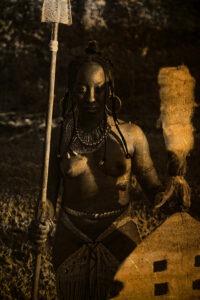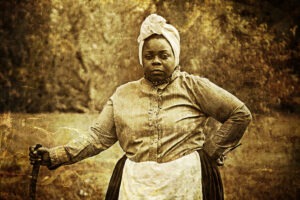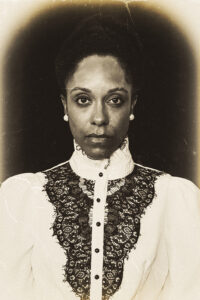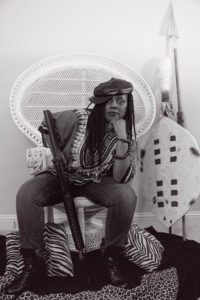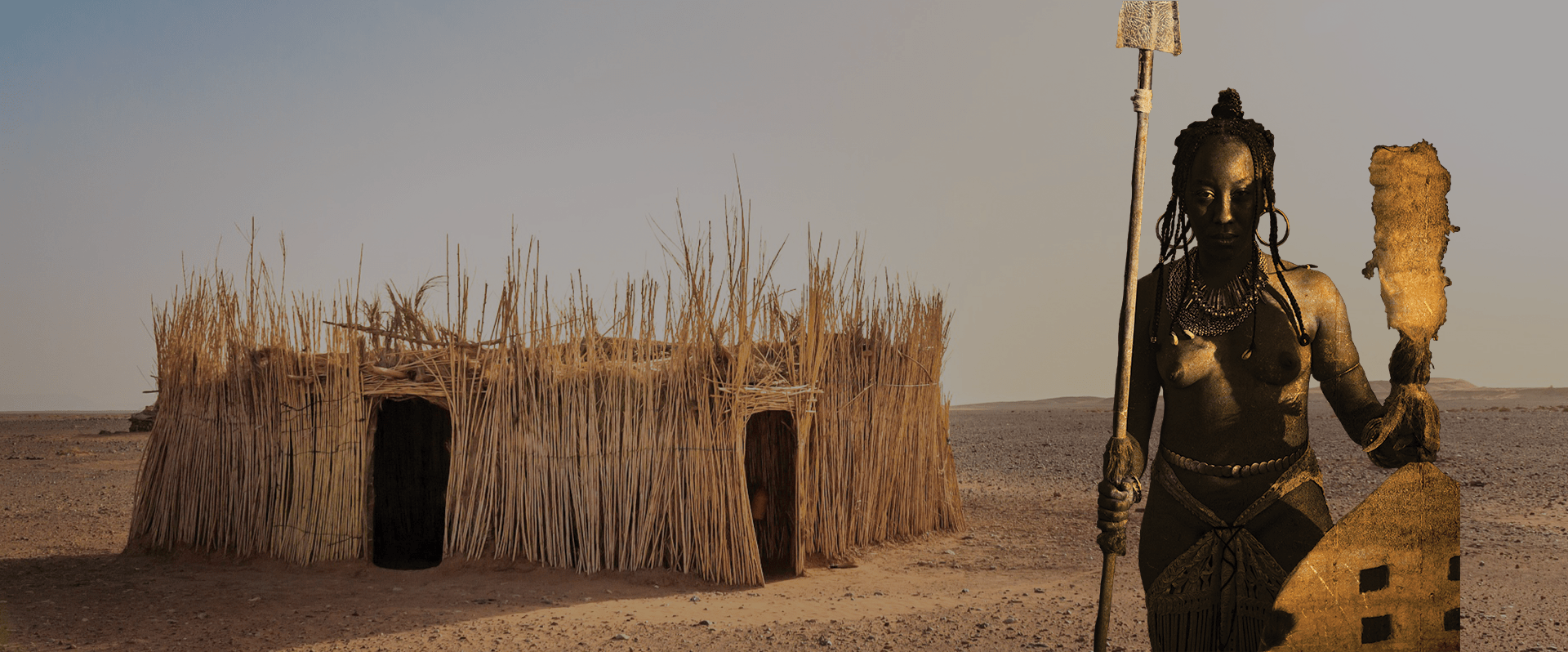
“Dynasty: The Peculiar Search for Totality”
“Dynasty: The Peculiar Search for Totality” is a poignant photographic series that delves into an ancestral journey towards freedom, encapsulating the struggle and resilience of a family torn apart by slavery. Through the lens of my camera, the narrative unfolds, exploring the intricate process of reclaiming liberation after one family member’s capture in Africa and subsequent enslavement in North America.
I partnered with Saanaa.io to employ augmented reality in each portrait, allowing the women depicted to narrate their own stories through poetic prose that I crafted specifically for the series. The project aims to deconstruct stereotypes and reclaim narratives, particularly evident in portraying the archetype “Mammy” as the dignified figure “Dada,” a symbol of sisterhood and strength.
This is a traveling exhibit! Reach out to us if you’d like to host this series at your venue.
Meet The Women of Dynasty
Akofena
Akofena (1783-1827) was of royal blood from the Ashanti tribe. A princess of the warrior clan, Akofena was wed to a Kenyan king for tribal alliances. She gave birth to Dada at age 17.
Dada
Dada (1800-1860) is the daughter of Akofena. Her name means “sister” in Swahili. At the age of 10, Dada was playing by the river one day when she was captured by a rival tribe and sold to British Europeans. She ended up enslaved in South Carolina. Raped at the age of 14 by her owner, she gave birth to Aba at the age of 15.
Aba
Wawa Aba (1815-1840) was Dada’s firstborn. Dada said that she was stubborn in childbirth, thus the name Wawa Aba, after the seed of the Wawa tree which is extremely hard. Aba was a rebel slave with one blue eye and one brown eye. Every time she looked in the mirror the blue eye reminded her of everything she hated.
Aba’s owner wanted her as his sole possession and constantly raped her even though she was married. After Nunu was born he saw that she was not his child and immediately ordered Nunu’s father’s death. Aba snapped and later that night, grabbed her husband’s machete and gutted 13 heads of her owner’s cattle while everyone was sleeping. The next morning, when her owner learned of the massacre, he savagely beat her to death, leaving her 2-day-old baby an orphan.
Nunu
Dada named Nunu (1840-1901) two days after her mother was killed at the hands of her owner. Nyame Nnwu Na Mawu, which means “God never dies, so neither can I”, was the full name given to her in honor of her mother and father’s lives. Dada chose this name so that Nunu would always be reminded that though her parents had transitioned from the material world, they lived eternally through her.
Dada taught Nunu about her great grandmother Akofena, the warrior of royal blood, and to be proud of her heritage. Nunu lived through the Emancipation of 1863 and became the first politically free woman of the Dynasty since her great-grandmother, Akofena.
Fifi
Fifi (1870-1972) was the first-born child of Nunu. During her lifetime, she witnessed the dynamic cultural shift between the expansive Black freedom of the Reconstruction Era and the repressive terrorism of Jim Crow.
A graduate of Fisk University, she was the first in The Dynasty to attend college. There, she began following the philosophies of W.E.B. DuBois. Her array of life experiences from seeing the first Black Senators to the horrors of the Ku Klux Klan; and to acquire an academic degree, pushed her to raise her daughter, Kokou, to be self-sufficient and unapologetically free. Fifi whose name means Friday, was Akofena’s great-great-granddaughter.
Kokou
Kokou (1895-1995) was a radically free woman. She was a Garveyite who supported the “Africa for Africans” movement and was financially independent. She earned her living as a singer and piano player; performing regularly around town at various venues as the featured artist or with other musicians. Kokou (Wednesday) was Akofena’s great-great-great-granddaughter.
Ashanti
Ashanti (1930-Present) is the 7th generation of the Dynasty. It is believed in many West African tribes, that she represents the reincarnation of her great-great-great-great grandmother Akofena.
Ashanti was named after her family’s indigenous tribe and was a proud revolutionary in the Black Panther Party. She is the keeper of The Dynasty’s heirlooms and story.
